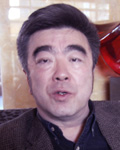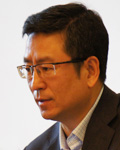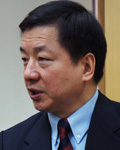Pursuing the Chinese dream
- By Shen Xiaoning, Wang Zhongyi & Duan Feiping
 0 Comment(s)
0 Comment(s) Print
Print E-mail Beijing Review, March 19, 2013
E-mail Beijing Review, March 19, 2013
![Astronaut Yang Liwei greets crew and onlookers as he emerges from the return capsule of theShenzhou-5, China's first manned space vehicle, on October 16, 2003 [Xinhua photo] Astronaut Yang Liwei greets crew and onlookers as he emerges from the return capsule of theShenzhou-5, China's first manned space vehicle, on October 16, 2003 [Xinhua photo]](http://images.china.cn/attachement/jpg/site1007/20130319/001ec949c22b12b226290d.jpg) |
|
Astronaut Yang Liwei greets crew and onlookers as he emerges from the return capsule of theShenzhou-5, China's first manned space vehicle, on October 16, 2003 [Xinhua photo] |
Achievements
History took a turn in July 1921, when the CPC was founded. It shouldered the responsibility to change the destiny of the nation and the people, and after 28 years of hard struggle, founded the People's Republic of China on October 1, 1949. China entered a new period along the road to renewal.
Many important decisions on establishing the People's Republic of China were made at the First Session of the CPPCC, which convened in Beijing in September 1949.
At the session, participants adopted the Common Program of the CPPCC, which served as a provisional constitution of the People's Republic of China, and created the Central People's Government.
It selected Beijing as the capital, made the five-star red flag the national flag, chose March of the Volunteers as the national anthem and adopted the Gregorian calendar.
In 1954, the National People's Congress (NPC) was established as the country's formal legislature. That December, the CPPCC passed a charter stating it would no longer serve as a legislature, but instead would be a key mechanism for multi-party cooperation and political consultation under the leadership of the CPC.
The NPC and CPPCC are the two basic platforms through which the Chinese people participate in discussion and management of state affairs.
 |
| Chen Xiaochuan |
"The CPPCC embodies consultative democracy. Although its decisions do not have binding power, it is nonetheless very influential. It is a democratic political system that suits China's cultural background," said Chen Xiaochuan, editor in chief of Beijing-based China Youth Daily and CPPCC National Committee member.
"China's growth, especially its achievements in the past three decades, proves the path we have taken, the system we have adopted and the theories that we have formulated are correct," he said.
Speaking of the responsibilities of the CPPCC, Bai Yansong, a news anchor and commentator with national broadcaster CCTV and CPPCC National Committee member, said, "CPPCC members should not only put forward proposals, but also speak at seminars and communicate with reporters. They should constantly conduct a large amount of research and think about the development of the country and society. I propose to publicize the performance of deputies to people's congresses and CPPCC members each year in order to put them under public supervision."
 |
| Bai Yansong |
In the 63 years since the founding of the People's Republic of China, especially in the more than three decades since the implementation of the reform and opening-up policy, China has continuously made breakthroughs in socialist construction, and Chinese people's dreams have been realized one after another.
In 1964, then Premier Zhou Enlai set forth the goal of "Four Modernizations" to advance development in sectors of industry, agriculture, national defense, and science and technology. In 1979, Chinese leader Deng Xiaoping specified the goal to increase per-capita gross domestic product to $1,000. The country reached that goal in 2003.
In 1997 and 1999, Hong Kong and Macao respectively returned to China, which marked a piece of great progress in upholding the country's sovereignty and territorial integrity.
In August 2008, the 29th Summer Olympic Games were successfully held in Beijing under the slogan of "One World, One Dream." Chinese people's century-old dream to host the Olympic Games came true.
 |
| Zhou Mingwei |
"Given China's past economic condition and the current complicated international situation, China's achievements are hard-won. We should be proud of these accomplishments, from which every one of us has benefited. In the process of making these achievements, we have encountered setbacks and challenges, all of which are the foundation of the Chinese dream," said Zhou Mingwei, President of the China International Publishing Group (CIPG) and CPPCC National Committee member.
As old dreams have been realized one after another, Chinese people begin to pursue new dreams.






Go to Forum >>0 Comment(s)